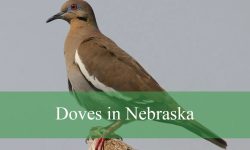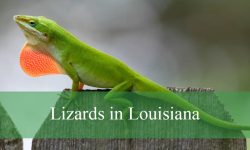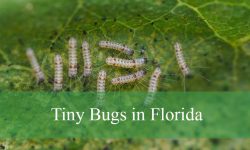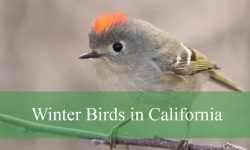Raccoons are undeniably adorable — with their tiny hands, masked faces, and curious nature, it’s easy to see why some people dream of keeping one as a pet. Across social media, videos of tame raccoons eating snacks or cuddling with humans have gone viral, sparking a growing fascination with these mischievous creatures. But behind the cuteness lies a serious question: Is it actually legal to own a raccoon in Georgia?
Georgia’s wildlife laws are among the strictest in the United States when it comes to exotic and native species. The state places strong emphasis on protecting native wildlife populations from disease, illegal trade, and improper handling. That means that even if you find an orphaned baby raccoon or encounter one in your backyard, keeping it as a pet can have legal consequences.
In this article, we’ll explore Georgia’s laws on raccoon ownership in detail — including what the law says, why raccoons are restricted, what penalties exist for violations, and what legal alternatives you can consider instead. By the end, you’ll have a complete understanding of whether keeping a raccoon in Georgia is a harmless idea or a risky legal move.
Is It Legal to Own a Raccoon in Georgia?
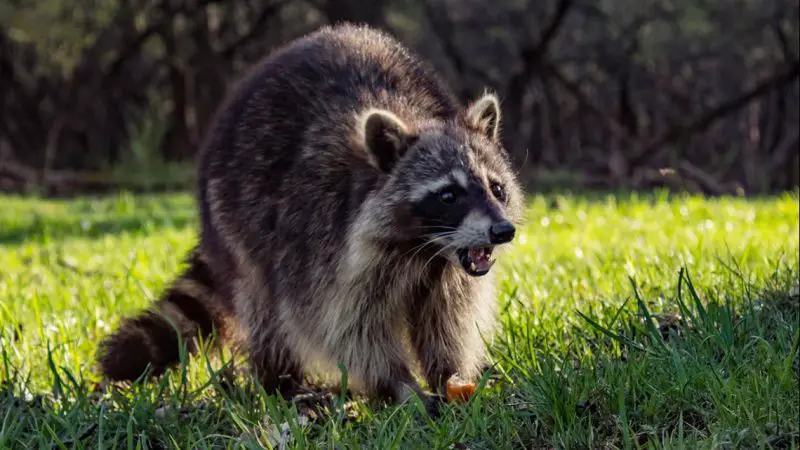
The short answer is no — it is illegal to own a raccoon in Georgia without specific authorization from the Georgia Department of Natural Resources (DNR). Under state law, raccoons are classified as wild animals, meaning they cannot be legally kept, bred, sold, or possessed by private individuals.
According to Georgia law (O.C.G.A. § 27-1-28), it is unlawful to possess any wild animal without the appropriate license or permit. Raccoons fall under the category of “wildlife” because they are native to the state and play an important ecological role. Even though they may seem cute and domesticated in viral videos, raccoons are considered unpredictable, potentially dangerous, and capable of transmitting diseases such as rabies.
The Georgia DNR’s Wild Animal Possession License only applies to individuals with valid educational, scientific, or rehabilitative purposes — not for pets. This means that even if you find an injured raccoon and nurse it back to health, you’re legally required to surrender it to a licensed wildlife rehabilitator rather than keep it.
Understanding Georgia’s Wildlife Laws
Georgia’s wildlife laws exist to protect both the public and the state’s native species. The Georgia Department of Natural Resources, through the Wildlife Resources Division (WRD), oversees all regulations regarding native and exotic animals.
Wild Animal Classification
Georgia classifies wild animals into several categories, such as native wildlife, exotic animals, and domestic pets. Raccoons are native to North America and are therefore governed by wildlife protection laws. This classification means that raccoons are not eligible for pet ownership unless under special licensing.
In contrast, some exotic pets (like certain reptiles or small mammals) may be owned with permits. However, raccoons are strictly off-limits due to health risks and ecological impact.
Purpose of These Regulations
The laws aim to:
- Prevent the spread of diseases like rabies, distemper, and roundworms.
- Protect Georgia’s ecosystems from unnatural wildlife capture or relocation.
- Reduce risks of injury or property damage caused by wild animals in captivity.
By enforcing strict wildlife possession laws, Georgia ensures that wild animals remain where they belong — in the wild or under professional care.
Why Raccoons Are Illegal to Keep as Pets in Georgia
While raccoons may seem friendly when raised from a young age, they retain their wild instincts. This makes them unpredictable and potentially dangerous in domestic settings.
1. Public Health and Safety Concerns
Raccoons are known carriers of rabies, a deadly viral disease transmissible to humans and other pets. Even a vaccinated raccoon can pose risks, as the disease can spread through bites or scratches. Additionally, raccoons can host raccoon roundworm (Baylisascaris procyonis), which can cause severe neurological problems in humans.
Because of these public health threats, the Georgia Department of Public Health strictly prohibits private ownership of raccoons without professional containment and vaccination protocols — conditions that are rarely feasible for private citizens.
2. Wild Behavior and Destructive Tendencies
Raccoons are nocturnal, highly intelligent, and remarkably dexterous — capable of opening doors, jars, and latches. These traits, while fascinating in the wild, can cause chaos in a household. Owners often report destruction of furniture, walls, and electrical cords. Once mature, raccoons become territorial and can attack out of fear or stress.
3. Ecological and Ethical Considerations
Removing raccoons from the wild disrupts local populations and ecosystems. Moreover, raccoons raised by humans often lose their ability to survive in the wild. For these reasons, Georgia wildlife officials strongly discourage attempts to domesticate or rescue raccoons without proper permits.
Penalties for Owning a Raccoon in Georgia
Owning or harboring a raccoon in Georgia without a permit can lead to severe legal penalties.
1. Fines and Misdemeanor Charges
Under Georgia law, illegal possession of wildlife can result in:
- Fines up to $1,000 per violation
- Up to 12 months in jail for misdemeanor offenses
- Seizure of the animal, which will typically be euthanized or transferred to a licensed facility
Repeat offenders may face higher penalties or loss of eligibility for future wildlife-related licenses.
2. Civil and Public Health Consequences
If a raccoon kept illegally bites or scratches someone, the animal will likely be euthanized for rabies testing. The owner may also face civil liability for injuries and public health violations.
3. Permanent Ban on Wildlife Possession
Those convicted of wildlife violations can be permanently banned from obtaining any future wildlife or rehabilitation permits in Georgia.
What If You Find an Orphaned or Injured Raccoon?
Many people encounter baby raccoons that appear abandoned and instinctively want to help. However, under Georgia law, keeping or handling wildlife without authorization is illegal, even with good intentions.
1. Contact a Licensed Wildlife Rehabilitator
If you find an orphaned raccoon, your best course of action is to contact a licensed wildlife rehabilitator immediately. These professionals are authorized by the state to care for injured or young wild animals. The Georgia DNR maintains a directory of certified rehabilitators who can provide proper care.
2. Do Not Attempt to Feed or Raise It
Feeding a wild raccoon can lead to dependency and reduce its survival chances if released. Moreover, improper handling can expose you to parasites or diseases.
3. Notify Local Authorities If Necessary
If the raccoon appears sick, aggressive, or unusually tame, report it to local animal control or DNR officers. This helps prevent potential disease outbreaks and ensures the animal is managed safely.
Are There Any Legal Exceptions or Permits?
While private pet ownership is illegal, there are a few specific cases where raccoon possession is permitted under Georgia law.
1. Licensed Wildlife Rehabilitators
Individuals with state-issued wildlife rehabilitation licenses may temporarily care for raccoons with the goal of releasing them back into the wild once recovered.
2. Educational or Scientific Institutions
Zoos, research facilities, and educational programs can possess raccoons under a Wild Animal License for educational display or scientific study. These facilities must maintain strict containment and health protocols.
3. Professional Exhibitors or Animal Handlers
Some wildlife educators or performers who use raccoons in approved educational programs may obtain permits through the DNR. However, these cases are extremely limited and require annual inspections.
For the general public, no such exemptions apply — meaning pet raccoons are not legally allowed under any circumstance.
Can You Get a Permit to Own a Raccoon in Georgia?
In short, no permits are issued for private ownership of raccoons in Georgia. Even if you apply for a wildlife license, the DNR does not approve applications intended for personal companionship or pet purposes.
Georgia’s permit system is designed exclusively for professionals involved in conservation, education, or scientific research. For most citizens, applying for such permits without a legitimate purpose would result in automatic denial.
If you want to work with raccoons legally, you would need to become a certified wildlife rehabilitator or gain employment at a facility licensed to care for wildlife.
Legal Alternatives to Owning a Raccoon
If you love raccoons but can’t legally own one, there are several safer and legal options to satisfy your fascination.
1. Adopt a Domestic Pet with Similar Traits
Consider adopting pets like ferrets or sugar gliders, which share playful and curious behaviors similar to raccoons. These animals are legal in Georgia and can make excellent companions when properly cared for.
2. Volunteer at a Wildlife Rehabilitation Center
Working with raccoons under professional supervision allows you to contribute to conservation efforts while staying within legal boundaries.
3. Observe Wildlife Responsibly
Set up wildlife cameras or visit state parks where raccoons are active. Observing these intelligent animals in their natural habitat can be both rewarding and educational.
Why Other States Differ in Their Raccoon Laws
Interestingly, raccoon ownership laws vary across the United States. Some states, such as Florida, Texas, and Michigan, allow raccoon ownership under certain permits, while others — like California, Hawaii, and Georgia — enforce total bans.
These differences depend on:
- Disease control strategies
- Local wildlife population management
- Ecological impact concerns
Georgia’s strict stance is primarily due to its dense raccoon population and ongoing efforts to control rabies transmission.
What Happens If You’re Caught With a Pet Raccoon in Georgia?
If authorities discover that you are harboring a raccoon, the outcome is rarely favorable. The animal will typically be confiscated by wildlife officers, and in most cases, it cannot be released back into the wild due to the risk of disease exposure or human imprinting. Unfortunately, euthanasia is often the only option.
Additionally, you may face:
- Legal citations and court appearances
- Heavy fines
- A criminal record for wildlife violation
In short, keeping a raccoon as a pet in Georgia is not only illegal but also unethical and potentially tragic for the animal involved.
Conclusion
While raccoons may seem like endearing, clever little companions, the reality is that they are wild animals with instincts and behaviors unsuited to domestic life. In Georgia, the law is clear: owning a raccoon is illegal without a specific state-issued permit, and violations can result in severe penalties.
Instead of trying to keep a raccoon, consider supporting wildlife rescue organizations, volunteering at licensed facilities, or simply appreciating these fascinating animals in their natural environment. It’s better for your safety, your community, and — most importantly — the raccoons themselves.
FAQs About Raccoon Ownership in Georgia
Is it legal to own a raccoon in Georgia?
No, it’s illegal to own, keep, or breed raccoons in Georgia without proper licensing from the Department of Natural Resources. Permits are not granted for personal pet ownership.
Can I rescue an injured or orphaned raccoon in Georgia?
Only licensed wildlife rehabilitators are authorized to handle injured or orphaned raccoons. Unlicensed possession, even for rescue, is prohibited.
Are there any states where raccoons are legal pets?
Yes, some states like Texas, Florida, and Michigan allow raccoon ownership with specific wildlife permits. However, always check local laws before considering it.
What are the penalties for owning a raccoon illegally in Georgia?
Penalties may include fines up to $1,000, jail time, and confiscation of the animal. Repeat offenders can face harsher consequences.
Can zoos or educators keep raccoons in Georgia?
Yes, but only with state-issued Wild Animal Licenses for educational, scientific, or exhibition purposes — not for personal companionship.

